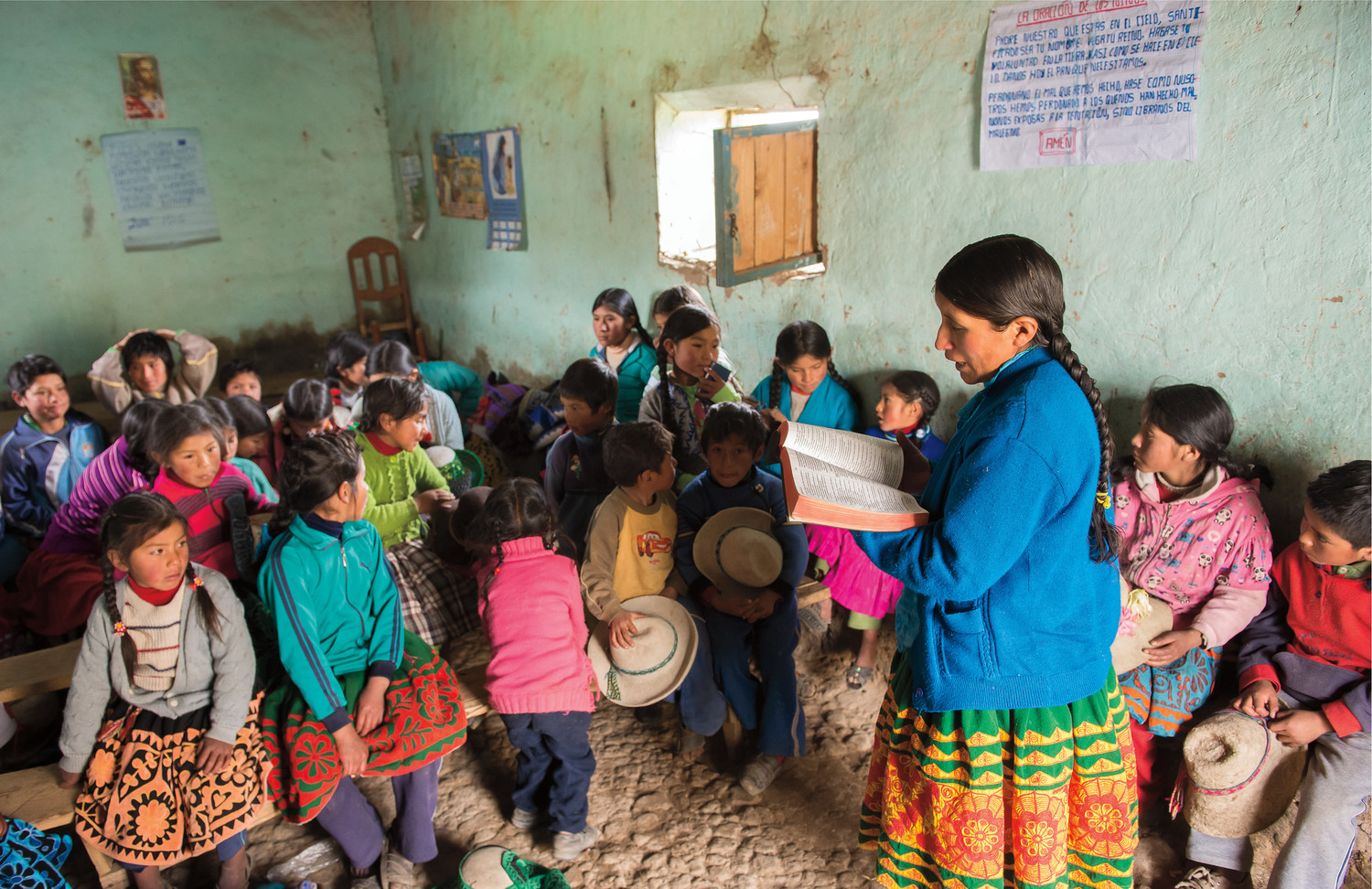As a pair of teenage girls ready themselves for a long walk to an ATEK Sunday school workshop in a far-off Quechua community, they bow their heads and pray that God will protect them on their journey. This isn’t simply a routine prayer; it’s an act of trust in the face of danger.
These girls used to attend high school, but on the five-hour walk to the nearest school they were frequently attacked and sexually assaulted by men hiding in the bushes.
“I told my father I didn’t want this to keep happening to me. So my father replied, ‘I don’t want you going to school anymore,’ ” one of the girls told Joni Carbajall, ATEK’s children’s ministry director. The two never left their community again for a long time and only decided to risk the danger of the road again in order to attend ATEK’s Sunday school workshop.
“We keep hearing in church that we need to have faith in God—that God will protect us always,” says one of the girls. “It’s like I’m beginning to learn that part of my faith.”
The danger of sexual abuse is a major reason why most girls don’t attend school past Grade 6 and are almost all illiterate.
To combat sexual assault in a Quechua culture where it is considered normal, ATEK has developed a number of tools. The organization has created a series of Quechua books, videos and audio files, telling the story of a woman who experienced sexual abuse. The story has even been translated into Spanish and sent to a group in Mexico. ATEK’s second tool is a sexual abuse-awareness workshop designed for both children and Sunday school teachers.
“Children have never been told that what is happening to them is actually bad,” says Joni. “We try to help them understand that it’s not acceptable. With Sunday school teachers, we explain how to teach children about sexual abuse, the dangers of it and how to avoid it.”
This issue is so serious that among the Quechua people, if you asked someone if there is sexual abuse within these communities, people will say there is never any type of abuse like that, says Fredi Quintanilla, director of ATEK.
“Within their worldview it doesn’t exist, because it’s such an integral part of their culture that it’s considered normal,” he says.
Parents are usually offended by ATEK’s workshops, because they are finally being confronted with something that has been so common throughout their lives. They have almost all been taken advantage of sexually.
“To come and say this isn’t good and is a sin and abuse, they say, ‘How can that be? How is that abuse?’ ” explains Joni.
This culture of abuse even exists within the Cusco Quechua evangelical church. At a meeting of denominational leaders, ATEK showed a sexual assault awareness video that they produced. Initially the group denied that there was a problem, until one man stood up and firmly said, “Let’s be sincere and honest about this: who hasn’t sexually assaulted someone?”
The room was quiet. Not one leader could say they were innocent. Then one brave man, sitting in the far corner stood up.
“I need help,” he admitted. Then he went to the front, where the group prayed for him and then for one another.
As a first step, the men in the group asked for forgiveness from Jesus, the one who was waiting to heal their brokenness and pain, no matter how great their sin.
•••••
